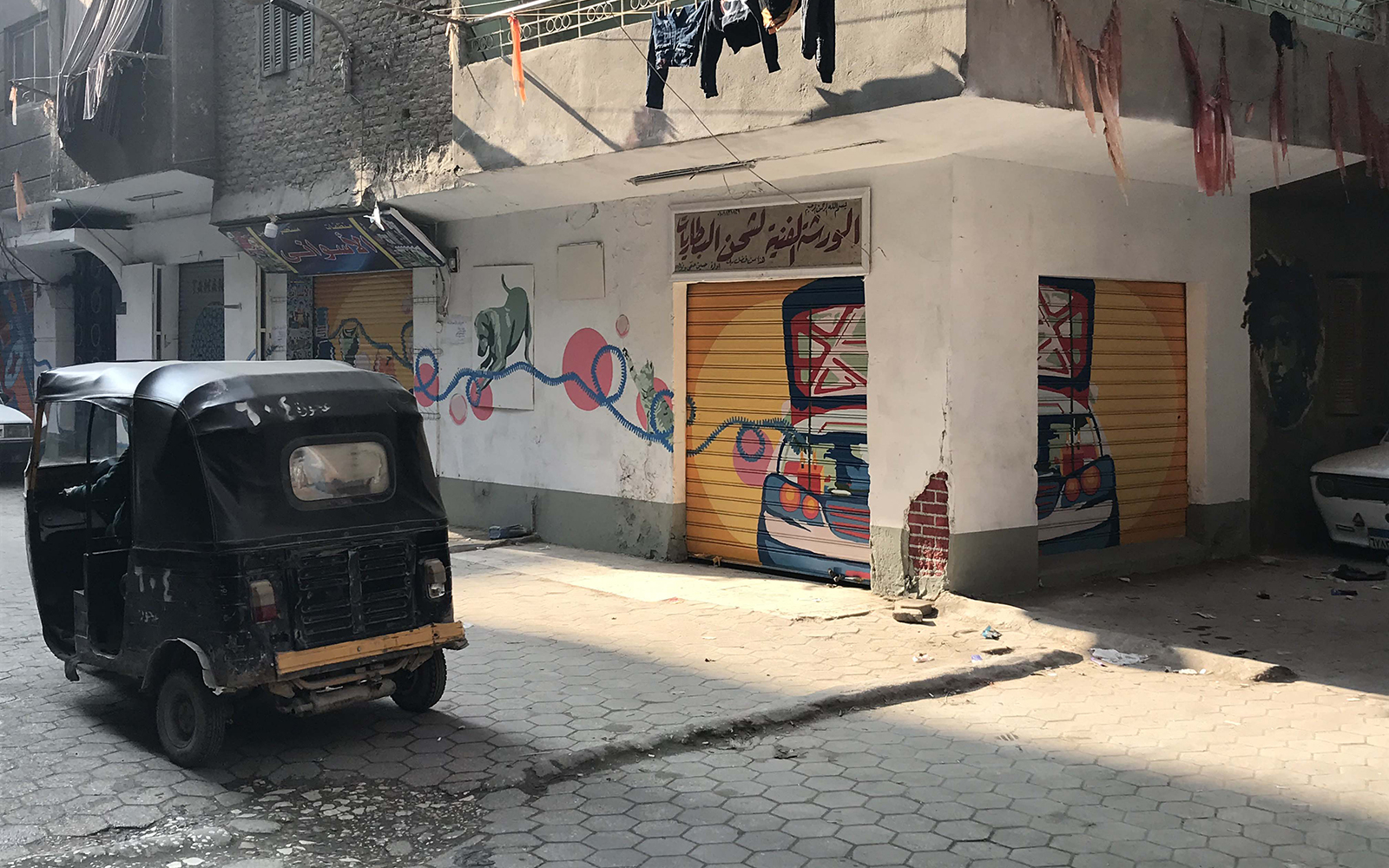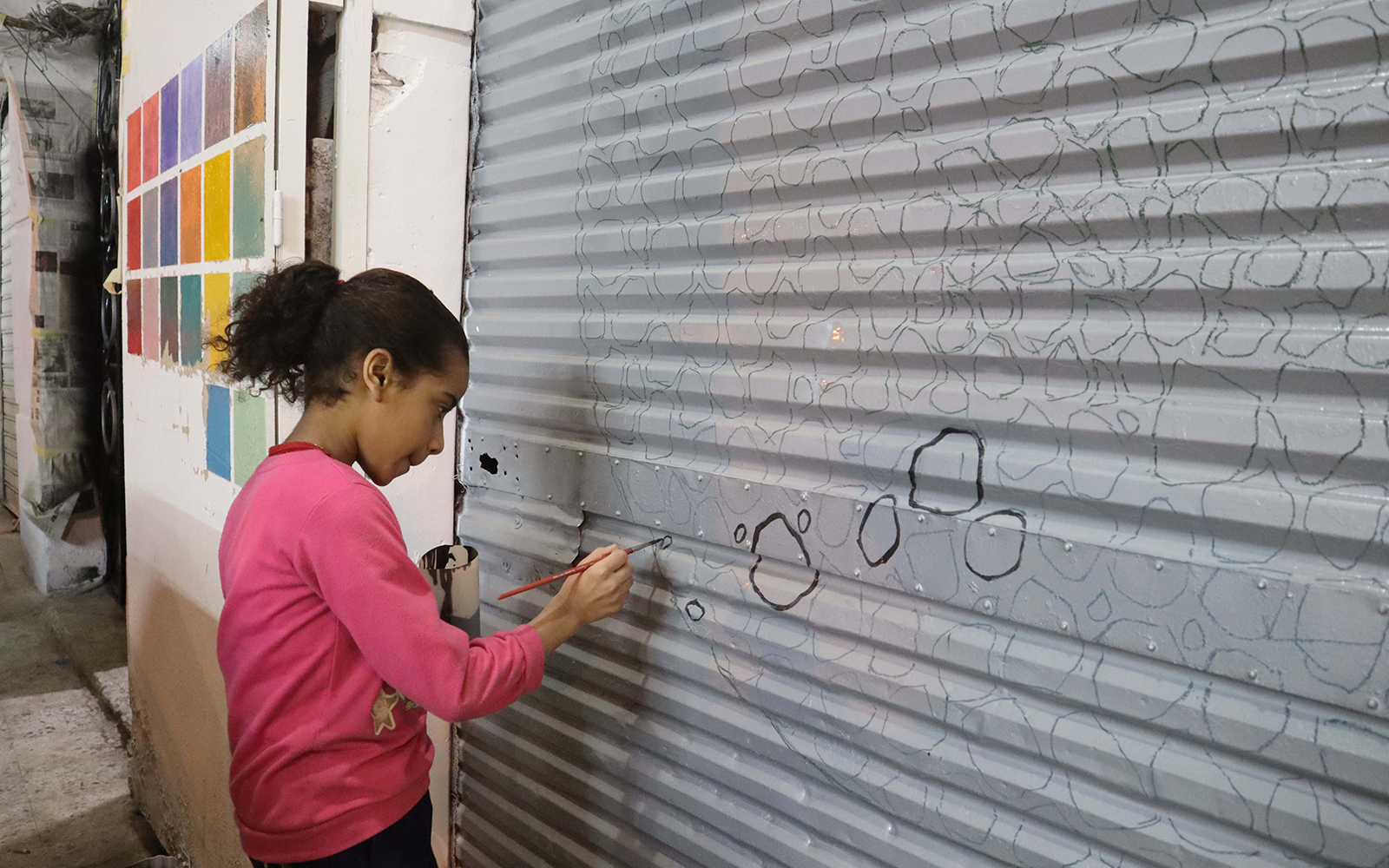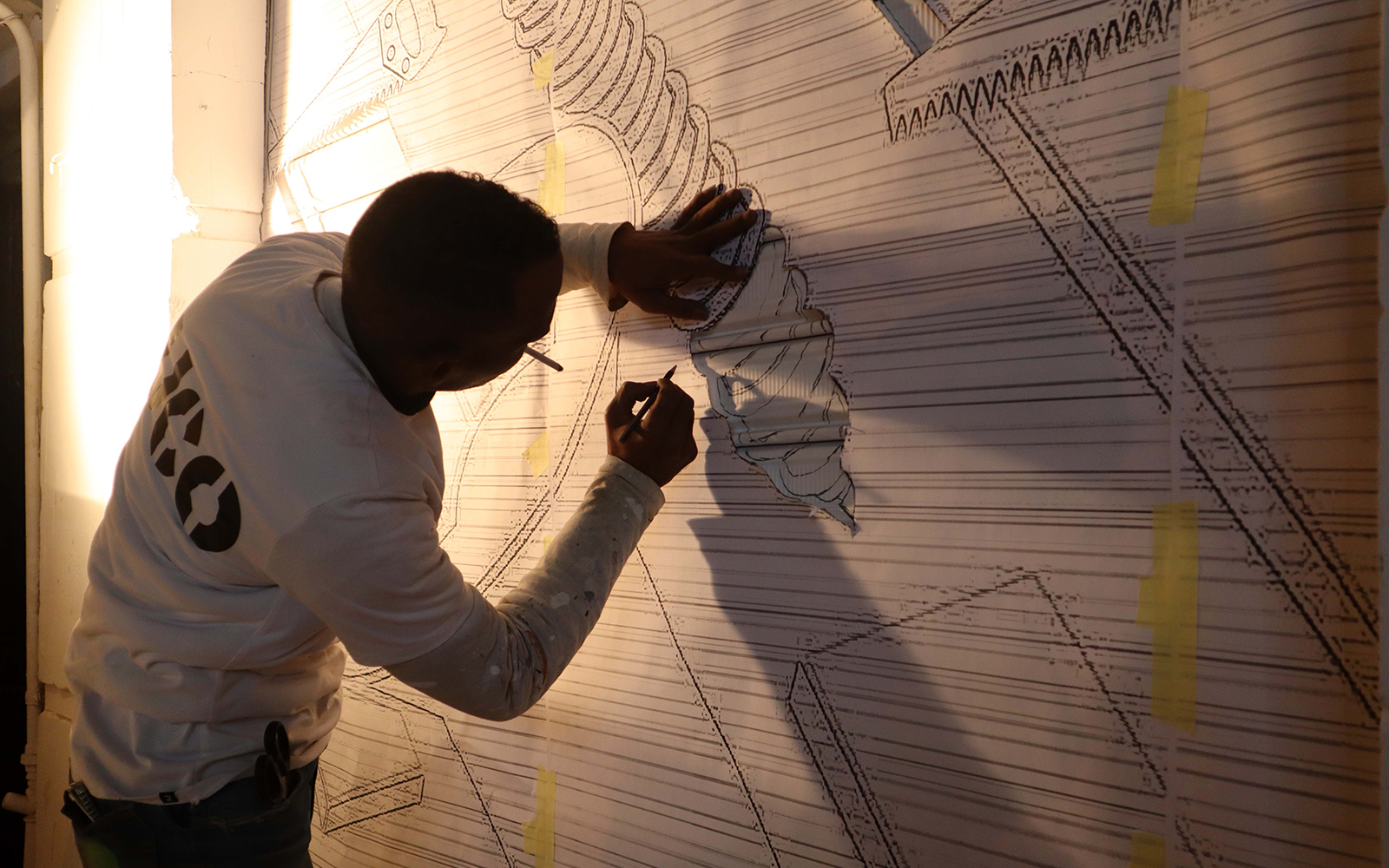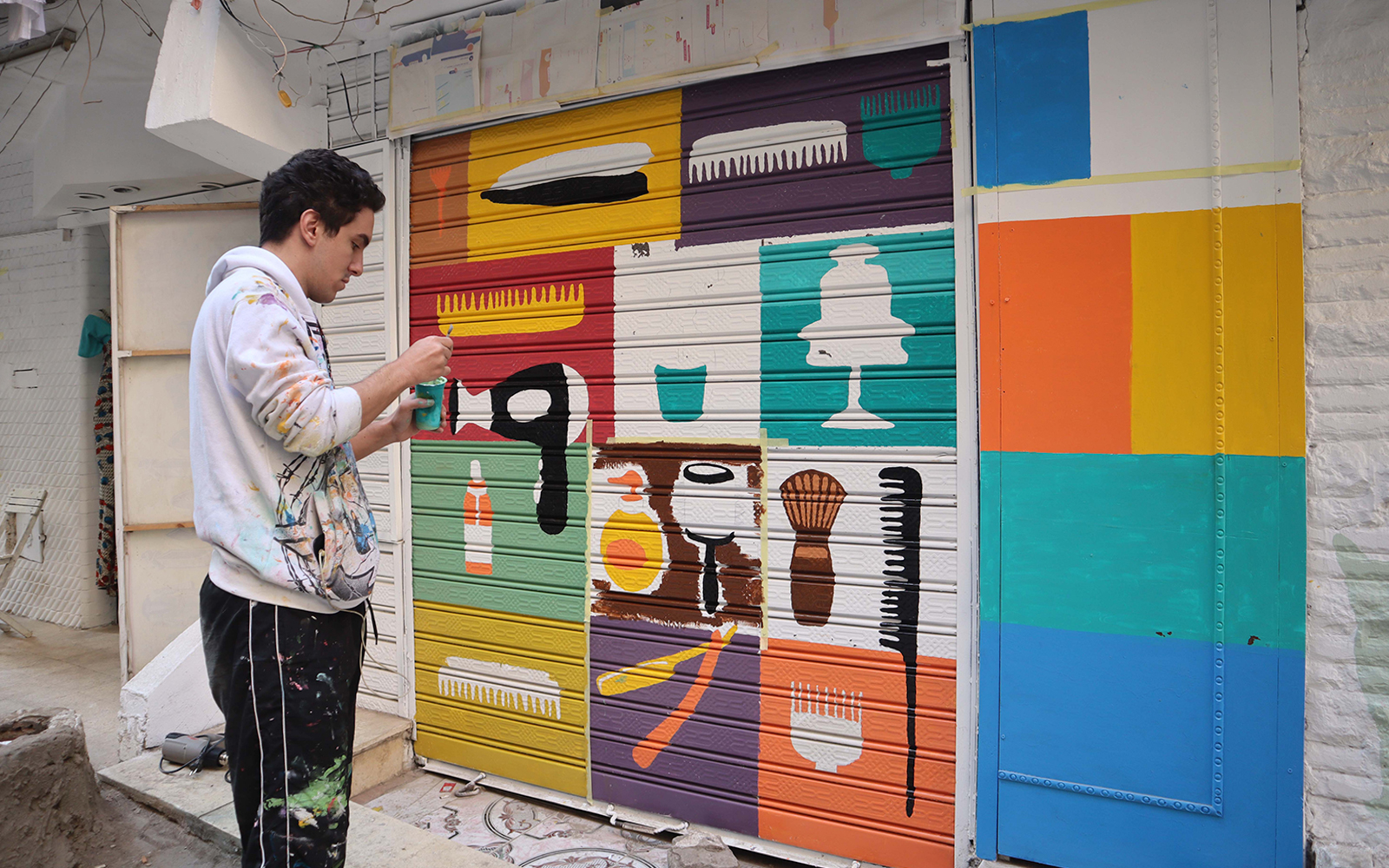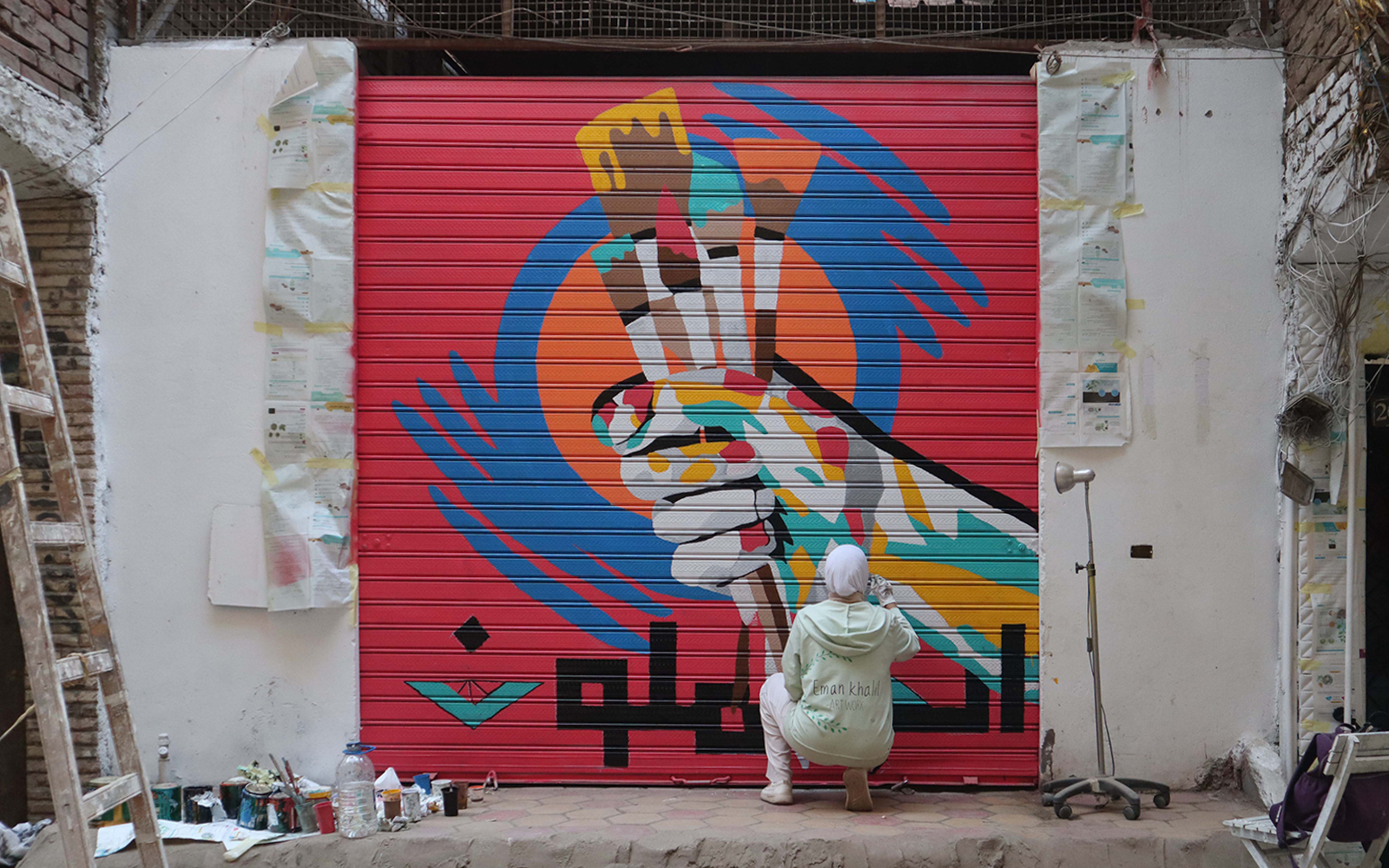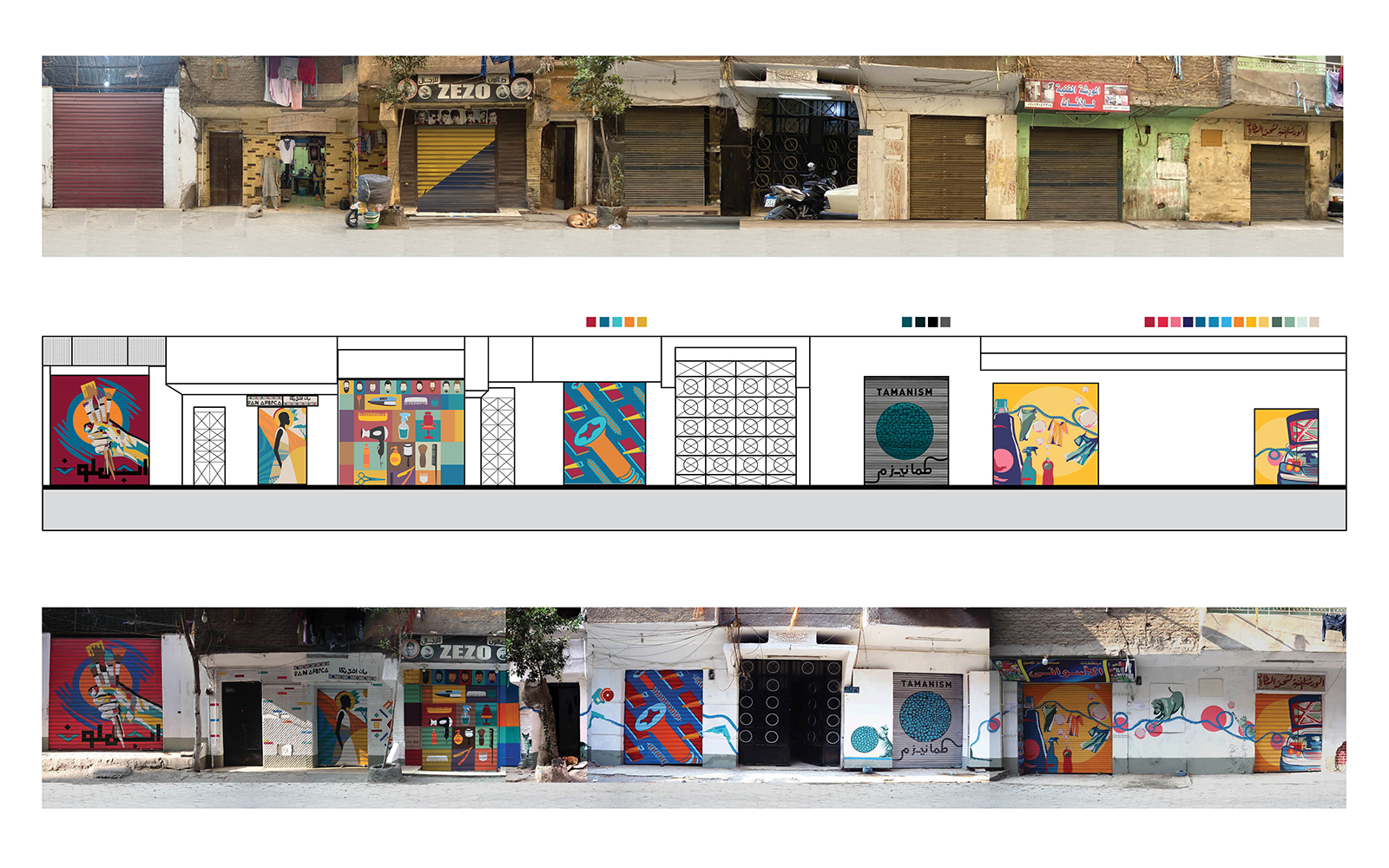INFORMALITY AS CREATIVITY: URBAN SHUTTERS WORKSHOP
Location: Ard al-Liwa
Scope: Workshops
Cairo, as most cities in the Global South, is largely produced informally, posing questions about the role of architects and designers in shaping their cities. The project aims at bringing together architects, designers and art students along with craftspeople and artisans, through a direct exchange of formal training and practical and grounded knowledge. Further, the project aims at promoting small businesses and enhancing the visual and environmental qualities in informal areas through direct dialogues with local stakeholders. The project is supported by The Dutch Embassy, in partnership with DUCO, and is part of a larger framework, titled Informality as Creativity, which is a two-year program, aimed at enhancing the built environment in informal areas in the Greater Cairo Region.
The project was organized around a series of modules involving artists, craftspeople, students and community groups. First was a research phase of the different businesses involved, including their needs and aspirations, and concluding with a design brief. During this phase five artists engaged seven stores, ranging from a barbershop, tailor, car mechanic, detergents store and artist studio, who demonstrated their interest to be part of this pilot project, sharing a common goal of enhancing the visual identity of local shops, and addressing the surrounding urban landscape and pedestrian experience in informal neighborhoods. The second phase was an ideational workshop including CLUSTER team, artists and community members to produce design concepts for both shutters of the participating shops and the walls in between. It involved a series of discussions to develop a coherent framework and visual identity of the street block while responding to the diverse needs of the shop owners and creative vision of each artist. The implementation phase, stretching over a few weeks, involved a collaborative engagement with craftspeople and art students, in addition to community youth and children. The production had to take into account the business hours of each shop, drying time of the paint, as well as practical considerations of copying the designs on the shutters. The project’s pilot phase was finally concluded with an opening event, with the presence of several community leaders, and representatives from the local municipality. The CLUSTER team alongside the artists and stakeholders presented the project through a street tour to explain the shutters design concepts.


